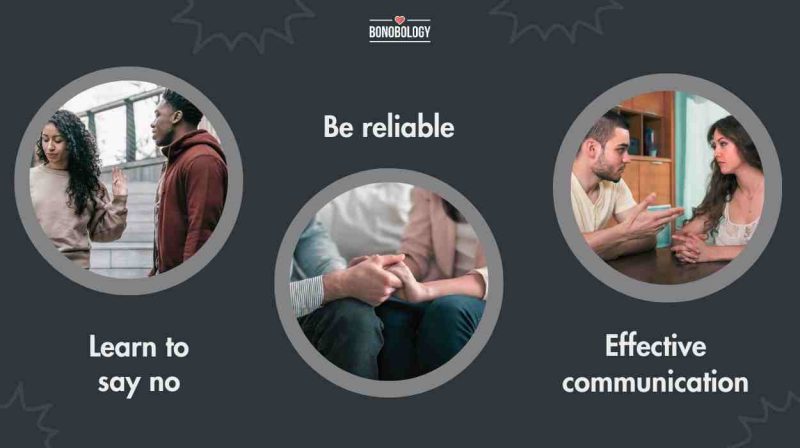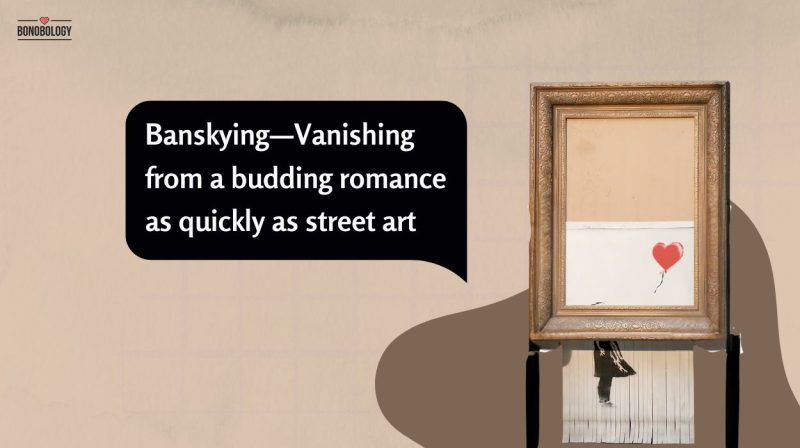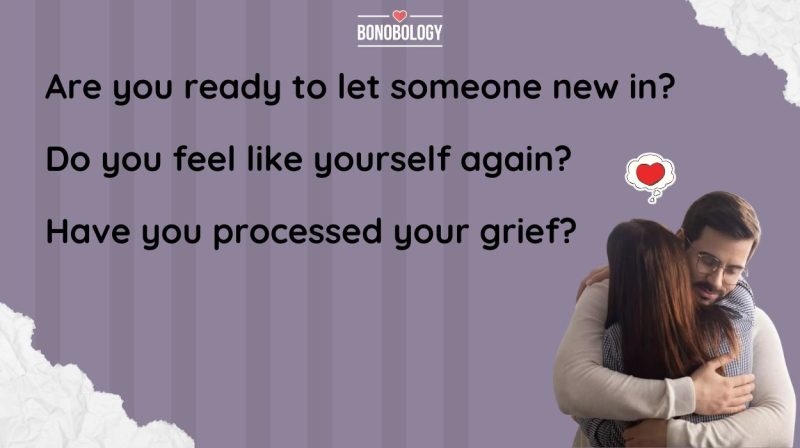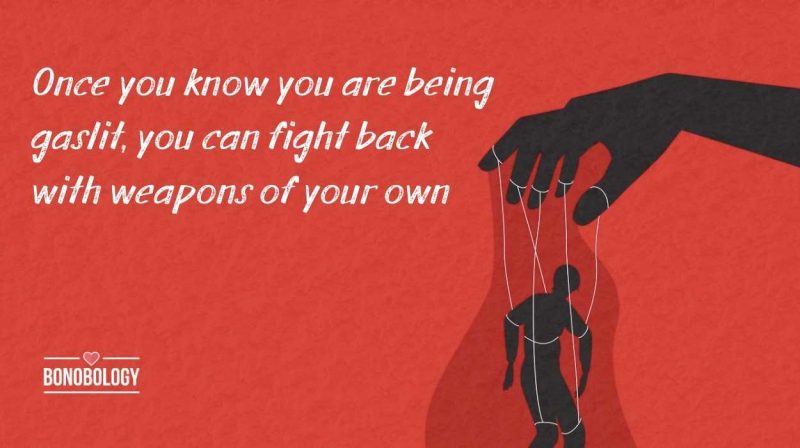Trust is the foundation of any healthy relationship, but when one partner struggles with trust issues, it can put a strain on both individuals. Whether caused by past traumas, insecurities, or unhealthy dynamics, figuring out how to help someone with trust issues can be challenging.
With the help of counseling psychologist Kavita Panyam (Masters in Psychology and international affiliate with the American Psychological Association), who has been helping couples work through their relationship issues for over two decades, let’s find out how we can help someone with trust issues.
Where Do Trust Issues Come From?
Table of Contents
Before you learn how to deal with someone with trust issues, you must first try to see and understand the world from their perspective. Trust issues often go hand in hand with insecurities, and the insurgence of both can be linked to a few things your partner might have experienced growing up.
Commenting on what causes trust issues, Kavita says, “Trust issues go back to childhood. When a caregiver does not give adequate attention or doesn’t interact with the baby, s/he starts feeling unsafe. These issues tend to substantially increase when the child is 2-3 years old and realizes that s/he cannot trust the caregivers.”
Related Reading: How To Catch A Cheater That Deletes Everything: 12 Hacks
“When it comes to relationships, trust issues can crop up when a partner is let down, or s/he expects too much. If one person is a narcissist, or if there’s not enough room to grow mutually, or even if one person constantly pushes their agenda are all scenarios where issues can grow. Cheating – be it emotional, physical, or financial can also be a factor in what causes trust issues,” she says. Some other causes of trust issues include:
- Being let down or betrayed by a partner (emotionally, physically, or financially)
- Relationships with narcissistic partners who neglect emotional needs
- Secrets or vulnerabilities being weaponized
- A lack of emotional support or mutual growth in the relationship

Signs You’re With Someone Who Has Trust Issues
Lack of trust in a relationship can manifest in different ways, often creating emotional strain and relationship problems. Recognizing these signs is the first step in fostering understanding and figuring out how to deal with someone with trust issues. If you recognize these behaviors in your partner, it may indicate that there’s no trust in relationship:
- Constant need for reassurance: They frequently ask for validation about your feelings, questioning your loyalty or commitment
- Suspicion and overthinking: They second-guess your intentions and look for hidden meanings in your words or actions
- Fear of abandonment: They worry excessively about being left, even without cause, leading to clinginess or withdrawal
- Difficulty opening up: They avoid being vulnerable, fearing they’ll be judged or hurt
- Jealousy: They become insecure when you interact with friends or coworkers, especially of the opposite sex
- Overreaction to small issues: Minor misunderstandings escalate quickly, as they might perceive them as breaches of trust
- Defensive responses: They react strongly to perceived criticism or feel attacked during disagreements
How To Help Someone With Trust Issues – 11 Expert-Backed Ways
Now that you know the reasons behind the 20 missed calls you see on your phone every time you go out with your friends, you must be curious about how to help someone with trust issues in a relationship. Having to constantly tell your partner that you’re faithful and you haven’t done anything to hurt them can become a pain, and ultimately, no relationship can survive without trust.
Anxiety and trust issues go hand in hand, which means your partner could end up affecting theirs, as well as your mental health with their persistent trust issues. Just figuring out why trust issues exist and saying “My girlfriend has trust issues because of her past”, isn’t really going to do much to rectify it, which is where these tips come in.
The following 11 tips on how to deal with someone with trust issues backed by Kavita should help get your relationship from a constant, “Why aren’t you picking up my calls?!”, to a “Have fun with your friends, love you” (You’re yearning to hear that, aren’t you?)
Related Reading: 10 Things To Do To Gain Trust Back In A Relationship After Lying
1. Choose effective communication over fights
Wondering what to do when your partner doesn’t trust you? There’s nothing in your relationship that cannot be solved with a healthy dose of communication. Getting to the bottom of the issues, figuring out a course of action, or talking about them can all help deal with the judgmental eyes your partner shoots your way when you tell them you’re going out with a “friend” from work.
Giving advice on how to date someone with trust issues, Kavita tells us that oftentimes, improving your communication with your partner is of utmost importance as well. “Use proper body language with the proper tone of voice, look into the eyes of your partner without looking threatening or pointing any fingers in an assertive manner.
“Instead of expecting the other person to guess what you are undergoing, it is better to talk to them to tell them. If what you say is used against you, you’ll know that this is a relationship that severely lacks trust and that you two aren’t even friends,” says Kavita.
Kavita offers communication tips to reassure someone with trust issues. “Keep eye contact, do not appear threatening, and gently put across your point in an amicable manner. See how they react and take it from there.”

2. Don’t keep secrets
Keeping secrets or hiding something in your relationship, fearing they’d incite a nasty fight when uncovered, is not how to deal with someone with trust issues. “You cannot know whether you trust your partner or not if you keep secrets. You need to tell your partner whatever you’re going through, how you’d like them to help you and what you need from them. If you keep secrets from your partner, it can end up destroying your relationship, since you’d then have to look elsewhere for support, resulting in an emotional affair. The primary connection in your life should be your go-to connection. If it’s not, something is clearly wrong,” says Kavita.
Related Reading: How To Trust Someone Again After They Hurt You – Expert Advice
3. Learn to say no
If your partner is too demanding, a trait most commonly seen in narcissistic spouses or partners, their heightened sense of entitlement may lead them to believe that they “deserve” a lot more than what is normal. When the questions and the demands begin to get absurd, learn to say no.
“If your safety and wellness are promised by a simple ‘no’, there’s no reason why you shouldn’t stand up for yourself. However, try not to be threatening, inciting a fight will only make things worse. Have a discussion as to why you’re saying no, and take it from there,” says Kavita.
When you’re thinking about what to say to someone with trust issues, you might be thinking about the sugar-coated reassuring phrases you can spew out. However, sometimes tough love is all you need.
Related Reading: Your Guide To Getting The Fourth Date Right
4. Set healthy boundaries to tackle anxiety and trust issues
Healthy boundaries help every relationship grow and leave room for individual growth as well, especially when there are signs of lack of trust in relationship. “No, I’d like to go out with just my friends”, or “No, you can’t call me when I’m at work”, can help make your relationship stronger, even if your partner initially reacts with irritation or an exasperated sigh.
Giving advice on how to deal with someone with trust issues, Kavita says, “Set up boundaries, not barricades. Physical boundaries could involve not kissing or hugging everyone, and emotional boundaries revolve around what works and doesn’t work for you. Convey what you’re comfortable with and what you’re not, in a gentle manner.”
To reassure someone with trust issues after you set up a clear boundary is extremely important. Once your insecure partner’s world has crashed down around them when you tell them they can’t check your phone anymore, let them know why they can’t and why you shouldn’t be expected to let them.
5. Address past traumas and triggers openly
Trust issues often stem from unresolved past traumas or bad experiences in previous relationships. It’s important to create a safe space when dating someone with trust issues, where your partner can talk to you without fear of judgment.
“Ask your partner open-ended questions and let them vent. Avoid interrupting or giving solutions unless they ask for them,” says Kavita. Once you understand their triggers, you can actively work on ensuring your actions don’t unknowingly provoke anxiety or mistrust. Acknowledging their pain and empathizing can go a long way in building a stronger connection.

6. Be reliable and keep your promises
If you’re looking to get a girl with trust issues to trust you, start by being reliable and doing what you say you’ll do. Made a lunch date? Show up. Promised to accompany her to her cousin’s wedding? Keep your suit ready. Said you’ll help her plan a party? Get your organizer’s cap on.
“If there is something you’ve committed to, make sure you do it. If you can’t keep your promise, it’s better to come clean and tell your partner. Don’t cheat on your partner, emotionally or physically. Keeping secrets can be extremely detrimental to your relationship,” says Kavita.
So here’s what to do when your partner doesn’t trust you. Did you tell your partner you’d block your ex (who you know is bad for you)? Make sure you follow through. Did you promise to help your partner out with something? Set a reminder and make sure you do it. The little things add up and help build trust.
Related Reading: It’s Hard To Gain Your Partner’s Trust After You Have Cheated – 12 Ways To Do It!
7. Practice active listening
When your partner expresses their concerns or mistrust, don’t dismiss them as irrational or dramatic. Instead, focus on actively listening to what they are saying. “Active listening means paying full attention, not planning your next response while they’re talking, and offering emotional validation even if you disagree,” says Kavita.
By showing genuine interest in their thoughts and emotions, you demonstrate that their concerns matter to you. This helps build a foundation of understanding and mutual respect, slowly easing their trust issues.
Related Reading: 15 Delightful Signs The Talking Stage Is Going Well
8. Take responsibility for your actions
“It wasn’t my fault, my friends didn’t tell me my ex would be there too” isn’t really going to go down well when there’s no trust in relationship. The psychology of trust issues tells us that a history of being lied to is what causes them in the first place. Trying to evade responsibility is only going to make it worse. “Be accountable for your actions. If you start blaming people for things that go wrong, it’s not going to work out.
“I always say that an apology should come with three R’s when you do something wrong. Regret, remedy, and responsibility. Without these things, you’ll never be able to own up to what you did wrong which in turn will make you seem less accountable,” says Kavita.
Related Reading: I Don’t Trust My Boyfriend – 9 Probable Reasons And 6 Helpful Tips
9. Spend time together
You know your relationship truly thrives when you don’t mind the traffic on your way to the movie theatre, just because you’re both together. The mosquito-laden picnics seem worth it, and the restaurant with the bad food doesn’t ruin your day. Spending time together is the hallmark of any good and secure relationship, and just being together is all it takes to make you happy.
“Be thankful, appreciate each other and be good friends to each other. A good relationship features individual as well as mutual growth. Spend quality time together, the more the emotional bonding grows, the more the anxiety and trust issues will subside,” says Kavita.

10. Encourage self-reflection and therapy
Helping your partner address their trust issues doesn’t mean you have to fix them alone. Encourage them to seek therapy or practice self-reflection to understand and manage their insecurities. “Sometimes trust issues stem from deeply rooted psychological patterns that need professional guidance to untangle,” says Kavita.
Therapy can help your partner develop coping mechanisms and unpack past experiences that contribute to their mistrust. Supporting their journey to self-growth without making them feel ashamed can strengthen your bond and mutual understanding.

11. Celebrate progress and milestones
When tackling lack of trust in a relationship, remember that rebuilding trust is a gradual process, so it’s essential to acknowledge and celebrate small victories. If your partner refrains from checking your phone after a long time or trusts you when you’re out with friends, let them know how much you appreciate their effort.
Offering another tip on how to date someone with trust issues, Kavita says, “Positive reinforcement works wonders in strengthening a relationship. Celebrate the progress instead of fixating on setbacks.” By focusing on the positives and recognizing growth, you motivate your partner to continue working on their trust issues, fostering a healthier and more fulfilling relationship.
Key Pointers
- A lack of trust often stems from childhood experiences, past traumas, or unhealthy relationships
- Some tips on how to help someone with trust issues include healthy communication and setting clear, respectful boundaries
- Being reliable, keeping promises, and avoiding secrecy can significantly rebuild trust over time
- Therapy and self-reflection are powerful tools for unpacking deep-seated insecurities and helping partners manage their trust issues effectively
- Recognizing and appreciating small steps toward trust can reinforce positive behaviors and strengthen the relationship
Final Thoughts
Living with a partner who can’t trust you enough to talk to someone of the opposite sex without assuming that you’re cheating on them, can be painstaking. But even so, you’re just not ready to bail on the relationship. With the points we listed out, we hope you now have a better idea of how to help someone with trust issues in a relationship. After all, doesn’t love deserve all the chances it can get?
Husband Has Trust Issues – A Wife’s Open Letter To Her Husband
9 Activities To Rebuild Trust In A Relationship – As Recommended By A Couples Counselor
Your contribution does not constitute a charitable donation. It will allow Bonobology to continue bringing you new and up-to-date information in our pursuit of helping anyone in the world to learn how to do anything.






















